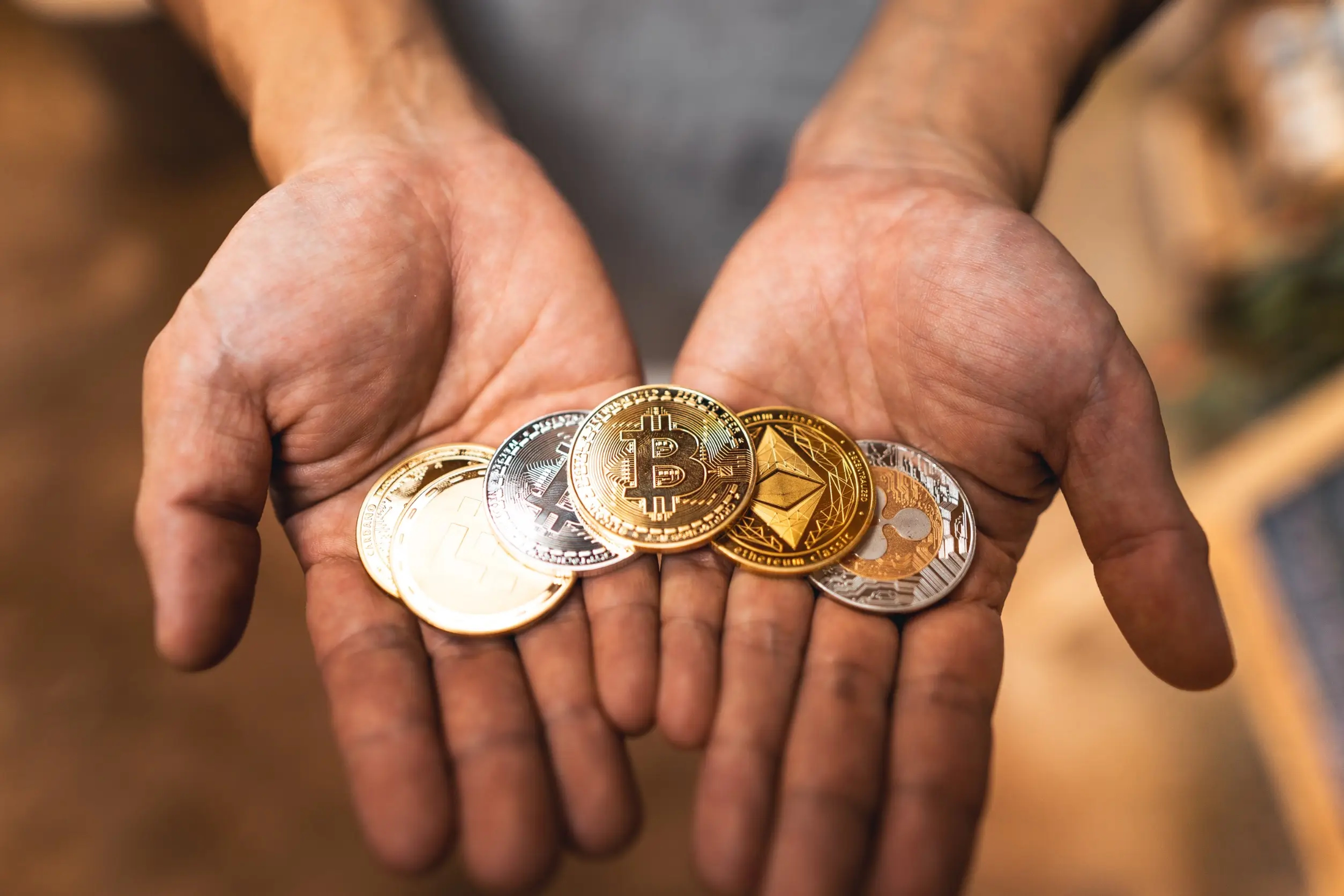Loyalty Gone Crypto: How the Blockchain Keeps ‘Em Coming

Rob Ewing

Unless you’ve been living under a rock, or have somehow managed to tune out the news (good luck with that), you’ve probably gained at least a passing familiarity with what the world has lovingly come to know as “crypto”. If you’re like most people though, that familiarity quickly degenerates into less than certainty when asked about it.
Even seasoned marketing veterans stumble a bit, and rightly so. Is it an asset? Is it a technology? Add NFTs (Non-Fungible Tokens) to the mix, and the grey areas get even greyer.
But without getting into the weeds of decentralized ledgers, encryption, and tokens just yet, suffice it to say that “crypto” equals “money”, money that has no intrinsic value, money that has no physical form, and money that has no connection to a central bank, but money all the same. And who cares if it sits on an uber-complex technology or has potential regulatory implications?
Certainly not retailers.
In fact, according to a report jointly conducted by PYMNTS and BitPay in which they surveyed 202 merchants with annual online sales of $250M plus, forty-six percent accept cryptocurrency as a legitimate form of payment. Companies earning $1B come in at a whopping 85%, while smaller merchants or those earning less than $250M come in at 23%.
But is the market ready for crypto-based rewards?
Apparently so, and that’s not such a bad thing.
While there are a lot of people out there that only marginally understand the technology behind crypto (aka the blockchain), it doesn’t take a mad scientist to appreciate that retailers see the value in it, or at least the advantages of extending crypto as a payment method.
But rewards? Sure, why not.
Loyalty programs have been around for ages, after all. American traders were doling out copper pieces to their loyal customers as early as the 1790s. And Green Stamps…remember those little guys? Sperry & Hutchinson were handing these out like candy decades before “digital” even came on the scene, and they were just a stamp having no more bank recognition than crypto today. As digital currencies take our imaginations (and our wallets), is it any stretch that customers could, and should, get rewards in Ether, Bitcoin, or some other stablecoin?
A Good Fit for Everyone

By offering crypto rewards, businesses overcome a laundry list of issues inherent to the traditional setup. Customers no longer need to register for some tacked-on “rewards program”, or create some special account to participate, and there are no weird geographical limitations or limited availabilities.
The blockchain changes all that, not only healing a horribly fractured and fragmented rewards market but also making things like keeping track of points and allocations much, much easier on the customer. As customers’ rewards are tokenized on the blockchain, they become free to use anywhere, even at another company—anywhere that accepts the same crypto as a form of payment. And just like that, customers are being rewarded for being customers, not just at some random sporting goods outfit out of Last Chance, Iowa, or trendy little coffee shop next to the Pilates studio, but everywhere—throughout the entire consumer ecosystem. Not bad, huh?
Even better, moving to blockchain allows everyone involved, from the program providers and administrators to the end customer, to interact under one base system without a bunch of intermediaries to compromise the privacy or competitiveness of the other.
Something Techy, Something New

No doubt loyalty rewards programs are here to stay, but beyond the niceties of the “shop anywhere” experience, or the ease of managing a crypto program, there remain other very real benefits to the blockchain approach.
- It’s cheaper to manage. Yes, there are some upfront expenses on the business side, but they are far outweighed by the savings, particularly when it comes to maintaining customer data and managing the loyalty program’s budget.
- It’s more secure than traditional methods. Blockchain records every single transaction to a distributed database, making every exchange not only traceable but also irreversible, preventing double spending, fraud, and any other means of blatant abuse.
- It builds even more loyalty. Customers can redeem some or all of their tokens for a variety of uses, but because points are “in crypto”, they can even sell their stake for other digital currencies (or fiat currencies through their digital wallet).
- It’s Lightning Fast. Transactions can be recorded and accessed by multiple parties in practically real-time, helping coordinators to credit points and manage transactions faster than traditional means.
Bottom line, companies looking to crypto have a tremendous opportunity to improve their bottom line while offering something catchy and cool to a whole new market comprised of people who can’t get enough crypto, and people who are quickly learning that crypto might actually be worth feeling enthusiastic about.
But There Are Some Potential Drawbacks
Crypto rewards are not without limitations. For all the perceived benefits to customers and the company, many brands struggle with the inability to control the flow of investment, or rather, the timing of such an investment. The idea of a customer (much fewer millions of them) amassing some sizeable hoard of crypto and then having the value of that crypto tank, is frankly terrifying. What’s the point of rewards if they can vanish overnight? How can the company possibly maintain its brand promise, while going back on everything it so positively spun?
And even if the value of the crypto holds, how does the company know what coin(s) to offer? With the adoption of a single currency like Bitcoin or Ether, customers could easily feel trapped by their options, especially when it comes to spending said currency with other “crypto-friendly outfits that might not accept that particular coinage. Unable to use their rewards, customers would be forced to convert to fiat currency defeating the whole idea of universal flexibility and pretty much undermining the program altogether.
And then of course there are taxes. Companies offering crypto rewards pass on a tax responsibility to their customers. In fact, reward recipients are responsible for reporting all cryptocurrency or fiat currency made, even if only a single, solitary dollar. The fact that crypto users can be assessed capital gains on trades, and even additional fees every time they redeem their rewards, can be a harsh reality, and a sobering wakeup call when it comes to how rewards are optioned.
But that friends is another topic entirely.

Rob Ewing
Managing Partner & VP Brand ArchitectureA veteran of the marketing and advertising industry for the last 20 years and counting, Rob has been instrumental in the development of a number well-known brands from the energy sector to the fine arts. Notable campaign-level clients have included: American Airlines, Sony USA, NBC Universal, Reliant Energy, Butterball, and the Better Business Bureau.
As one of Simple Media’s senior advisors and brand evangelists, Rob blends his extensive knowledge of brand communications, digital solutions architecture, and multi-channel campaign strategies into nearly every challenge he undertakes. When not consulting with clients, Rob lectures on a variety of media-askew topics including brand expansion tactics, entertainment marketing, and licensing.
(He also happens to make a pretty impressive omelet. Just saying.)
CONTRIBUTORS ARE WELCOME
Other recommended thoughts

The Role of a Marketing Agency in Modern Business

How Does Creative Agencies Help Brands To Make Sucessful?





